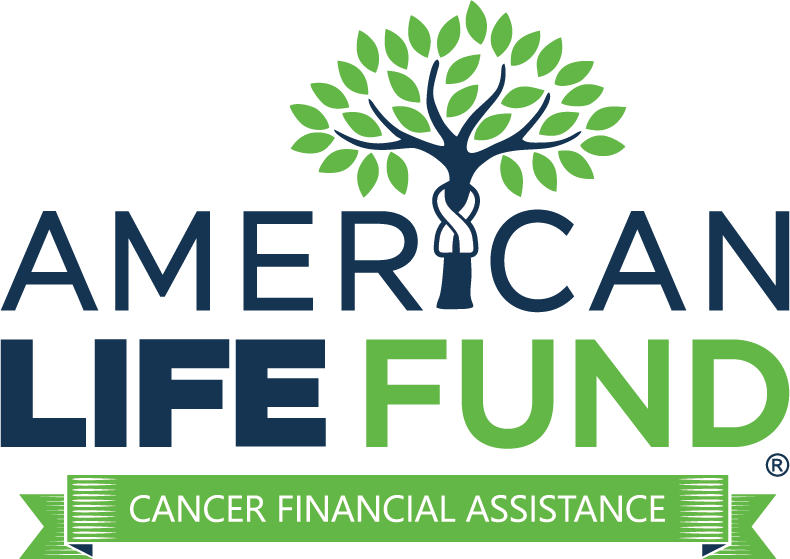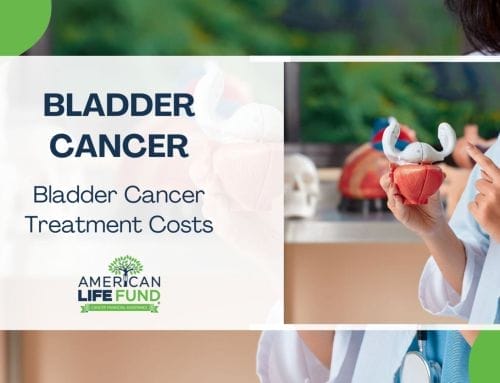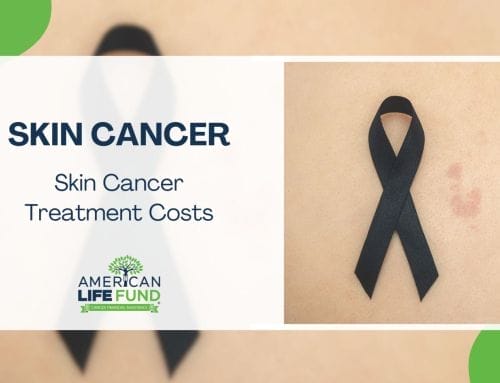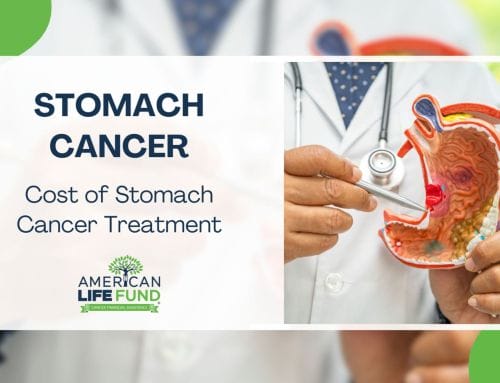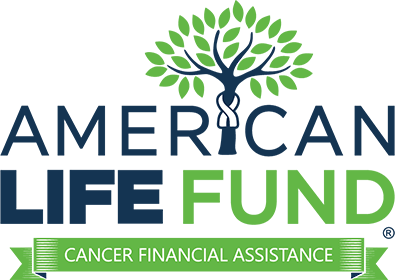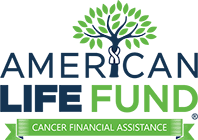“Cancer” is a word that often evokes powerful emotions of fear, despair, and anxiety. As the costs associated with cancer care continue to escalate, it’s alarming but not surprising that one in three cancer patients find themselves in debt. Beyond the physical and emotional toll, a cancer diagnosis brings with it a heavy financial burden, affecting not just the patients but also their loved ones.
Diving into the financial implications, a 2022 study titled “Financial burden among cancer patients: A national‐level perspective” by D. Mudaranthakam, J. Wick, Elizabeth Calhoun, and T. Gurley, sheds light on the broader economic challenges faced by cancer patients. The study reveals that rising treatment costs and work-related limitations drive many cancer patients toward bankruptcy and lower their quality of life. This financial hardship, compounded by a lack of awareness and resources for newly diagnosed patients, has been linked to increased mortality rates [D. Mudaranthakam et al., 2022].
The battle against cancer is not just medical; it’s also financial.
On top of that, an average of 15,570,000 adults are living with a cancer condition every year in the United States [O. Almohammed et al., 2019]. This staggering number underscores the financial strain that many families are under.
Recognizing this challenge, we at American Life Fund is dedicated to assisting cancer patients financially. We’ve curated a list of resources offering financial assistance to those battling cancer.
Below are some of the top resources for direct financial assistance programs for cancer patients.
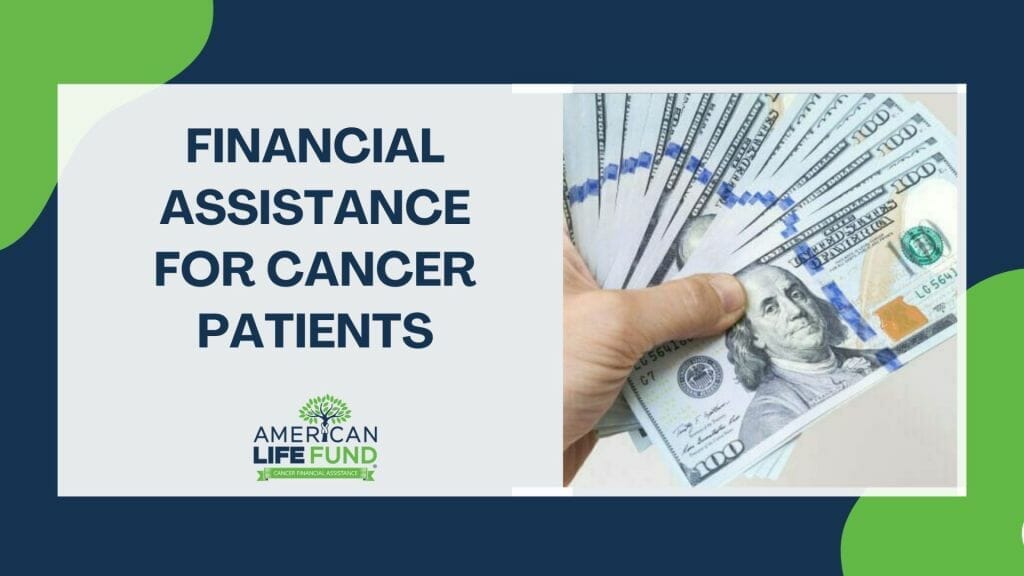
Financial Assistance For Cancer Patients
Navigating the difficulties of a cancer diagnosis is challenging enough without the added pressure of financial burdens. Many patients have questions about financial assistance, insurance policies, and other monetary concerns as medical bills pile up. Our aim with this comprehensive guide is to shed light on the financial resources available to you as a cancer patient.
1) Mortgage, Rent, And Utility Assistance For Cancer Patients
When facing the challenges of cancer treatment, the last thing anyone should worry about is how to pay for basic utilities. Every bit of financial assistance can make a significant difference, providing a lifeline during trying times.
More than just financial aid, utility assistance serves as a crucial support system for cancer patients. It’s designed to help cover essential home utilities, including energy costs, regular bills, and even critical energy-related repairs. By alleviating these expenses, patients can focus their resources and energy on their treatment and recovery, free from the added stress of accumulating bills.
Several organizations and programs offer this invaluable support:
- 2-1-1: This is the telephone number of a call center that provides information and referrals to health and human services for everyday needs and during crises. They offer resources ranging from basic human needs like food banks and shelters to employment support and resources for older adults. Contact 2-1-1 for availability in your area.
- LIHEAP (Low Income Home Energy Assistance Program): Specifically designed to assist low-income households, this program offers support for home energy costs, regular bills, and even critical energy-related repairs. The contact details for this resource vary by state, so it’s essential to check their website for specific information.
- Cancer Horizons: The Cancer Horizons platform provides a plethora of resources, including utility assistance, to support cancer patients.
- The Pink Fund: Another valuable resource offering financial aid to cover utility costs for cancer patients.
- Cancer Financial Assistance Coalition (CFAC): A coalition of organizations aiming to help cancer patients navigate the financial challenges of their treatments. CFAC’s mission encompasses facilitating communication among member organizations, providing resource information, and advocating for patients facing financial burdens due to cancer treatment costs.
- Community Action Partnership: Local non-profit organizations, primarily funded through the federal government, aiming to promote self-sufficiency. They administer programs like Head Start services for children, Low-Income Home Energy Assistance (LIHEAP) utility grants, and other emergency financial assistance. You can use their website to search by zip code or call 202-265-7546 to find your local agency.
- Expect Miracles Foundation’s Samfund Grants Program for Young Adult Cancer Survivors: This program supports young adult cancer survivors in the U.S. as they recover from the financial impact of cancer treatment. They offer grants covering a wide range of post-treatment financial needs related to the cancer experience.
- Family Reach: Family Reach is dedicated to removing the financial barriers between cancer patients and their treatment. They deliver financial education, resource navigation, and emergency relief funds to patients and caregivers facing a cancer diagnosis.
- Headstrong Foundation: This foundation offers financial assistance to individuals with blood cancer and provides comfort kits to individuals with any type of cancer.
- Homeownership Preservation Foundation: The Homeownership Preservation Foundation helps homeowners navigate financial challenges and avoid mortgage foreclosure. They guide consumers onto the path of sustainable homeownership and develop innovative solutions to preserve homeownership.
- Live Like Bella Childhood Cancer Foundation: This foundation provides financial assistance for various needs to pediatric cancer families while the child is undergoing treatment.
- NetWish: NetWish provides assistance, up to $200.00, for those who can demonstrate a financial need. NetWish will issue gift certificates or provide payments directly to pay bills.
- Pinky Swear Foundation: This foundation helps kids with cancer and their families with financial and emotional support.
- Rally Foundation: Rally Foundation empowers volunteers nationwide to raise awareness and funds for childhood cancer research.
- The Andrew McDonough B+ Foundation: The Andrew McDonough B+ Foundation provides financial assistance to families of children with cancer.
- The National Children’s Cancer Society: The National Children’s Cancer Society provides financial and emotional support to families throughout the United States during their child’s cancer treatment.
2) Prescription, Treatment, And Pharmaceutical Patient Assistance Programs
The rising cost of cancer medications is a significant concern for many patients. However, there are several resources available to help alleviate these expenses.
- Drug Companies: Some pharmaceutical companies offer assistance programs for patients. These can range from helping with insurance repayments to providing discounted or even free medicine. If you’re on a specific medication, contacting the manufacturer directly for potential assistance is a good idea.
- Medicine Assistance Tool: The Medical Assistance Tool connects patients with various prescription assistance programs. Their user-friendly website lists multiple options that cancer patients might qualify for, offering free or reduced-cost prescriptions.
- Needy Meds: Needy Meds is an organization that provides a free Drug Discount Card, which can lead to savings of up to 80% on prescription medications. They can be reached at 800-503-6897 for more details and assistance.
- Medication Assistance Programs Grid: This comprehensive PDF guide, generously provided and updated by Wendalyn Andrews from The University of Arizona Cancer Center, offers a detailed overview of assistance programs. (Last updated: December 2020)
- The Assist Fund: The Assist Fund provides financial backing to chronically ill patients facing high medication costs.
- Good Days: This organization offers financial assistance by covering co-pays for individuals with life-altering conditions.
- Patient Advocate Foundation’s Co-Pay Relief (CPR): This initiative offers direct financial aid to eligible individuals for medication copayment and coinsurance expenses.
- Patient Services, Inc.: This organization aids with insurance premiums and co-payments for individuals with chronic diseases.
- RxHope.com: A platform that assists patients in obtaining free or low-cost prescription medications.

3) Travel And Transportation Assistance For Cancer Patients
When dealing with cancer, the last thing you should worry about is the price of gas; however, as trips to medical treatment centers increase, so does the cost of transportation. Gas can be EXPENSIVE – so why pay for it if you don’t have to? Cancer patients can obtain free gas cards by contacting local cancer support organizations, hospital social services, and charities like the American Cancer Society. To qualify, patients need to present proof of their ongoing cancer treatment. For more information and to apply, reach out to cancer support organizations, nonprofits and consult the social worker at your treatment center. Availability varies, so checking with cancer support groups or hospitals is advised.
- Gas and Grocery Assistance:
- Tenaciously Teal: Provides gas and grocery gift cards for cancer patients, easing the financial strain of daily expenses.
- The Cancer Card Xchange: Periodically accepts new applicants, offering support in the form of gift cards.
- NeedyMeds: A valuable resource for medical transportation and travel expenses, helping patients get to and from their treatments.
- Air Travel Assistance:
- Air Care Alliance: Air Care Alliance lists free transportation services volunteer pilots and charitable aviation groups offer.
- Air Charity Network: Air Charity Network coordinates free air transportation across the U.S. for those in need.
- Along Comes Hope®: Along Comes Hope® supports families of children with cancer, offering financial assistance for travel and advocating for policy changes.
- Angel Flight East & Angel Flight Northeast: Angel Flight East & Angel Flight Northeast are nonprofit organizations providing free air transportation for patients needing to travel for treatment.
- Corporate Angel Network: Corporate Angel Network arranges free air travel using empty seats on private and corporate jets for cancer patients.
- LifeLine Pilots: LifeLine Pilots offers free air transportation through volunteer pilots for those with medical needs.
- Mercy Medical Angels: Mercy Medical Angels provides free or low-cost transportation for medical purposes.
- PALS (Patient AirLift Services): Patient AirLift Services arranges free air travel for those needing medical services and unable to fly commercially.
Free gift cards for Cancer Patients
Cancer patients can obtain free gift cards from places like cancer support groups, hospitals, and established non-profit organizations. These gift cards can help cover expenses like groceries, transportation, or other essential needs.
The Cancer Card Xchange: This organization collects and distributes FREE gift cards to cancer patients around the country in denominations ranging from $10 to $100. The aim is to provide a small but meaningful way to ease the financial stress that often accompanies a cancer diagnosis.
Cancer Alliance of Help & Hope: This group focuses on providing financial assistance to cancer patients, and free gift cards are one of the many ways they offer support. These cards can be a lifeline for patients who are struggling to meet everyday expenses while also managing the costs of treatment.
Hope Chest provides financial assistance to breast cancer patients through gift cards for groceries, gas, and other necessities.
4) Fundraising
One of the quickest and easiest ways to supplement cancer costs is fundraising. With a little upfront investment of your time and a good social network, fundraising can be an effective tool for harnessing financial assistance for cancer.
Online fundraising platforms like GoFundMe allow you to post your need/cause and share that need/cause with others. The downside is you only receive a portion of the funds raised. It can be an efficient way to help relieve cancer treatment-related expenses.
The second method of fundraising worth considering–and from which you’ll get to keep all profits– is known as a personal fundraiser. With this type of fundraiser, you, your friends, and your family raise funds by offering something to the community, such as a bake sale or car wash.
Feel free to check out MedGift Advocacy Services for a list of fundraising ideas.
Don’t be afraid to seek help. You deserve it, no matter what your financial situation is.

5) Health Insurance
Health insurance is important in providing financial assistance for people with cancer. Here’s how health insurance can assist:
- Coverage of Treatment Costs: Health insurance typically covers a significant portion of the costs associated with cancer treatments, including surgeries, chemotherapy, radiation therapy, and targeted therapies.
- Prescription Drug Coverage: Many health insurance premiums have prescription drug benefits, which can reduce the out-of-pocket costs for cancer medications, some of which can be extremely expensive.
- Hospital and Doctor Visits: Regular check-ups, diagnostic tests, hospital stays, and follow-up visits can add up. Health insurance helps cover these costs, ensuring patients get the necessary care without the added financial stress.
- Specialized Treatments: Some advanced treatments or experimental therapies might be covered by insurance, especially if they’re deemed medically necessary.
- Home Health Care: If a cancer patient requires care at home, some health insurance plans might cover the costs of home health care services.
- Rehabilitation and Therapy: Post-treatment rehabilitation, physical therapy, or occupational therapy might be necessary for some patients. Health insurance can help cover these costs.
- Durable Medical Equipment: Items like wheelchairs, walkers, or oxygen equipment, if required, might be covered or partially covered by health insurance.
- Mental Health Services: Coping with a cancer diagnosis can be emotionally challenging. Many insurance plans provide coverage for mental health services, including counseling or therapy.
- Preventive Services: Some insurance plans cover preventive services, like cancer screenings, at no extra cost. Early detection can lead to more effective and less costly treatments.
- Caps on Out-of-Pocket Costs: Many health insurance plans have an annual out-of-pocket maximum. Once a patient reaches this amount, the insurance covers 100% of the allowed amount for covered services.
- Assistance with Appeals: If a claim is denied, many health insurance providers offer assistance with the appeals process, guiding patients on how to get the necessary coverage.
- Case Management Services: Some insurers offer case management services for patients with serious conditions like cancer. Case managers can help patients understand their diagnosis, treatment options, and the benefits available to them.
- Financial Counseling: Some insurance providers offer financial counseling services to help patients understand their coverage, out-of-pocket costs, and potential financial assistance options.
6) Your Life Insurance Policy Pays You (Through a Viatical Settlement)
Anyone struggling with a severe medical condition knows that health insurance coverage doesn’t always cover all costs. You may still face significant out-of-pocket expenses in the United States, even with government programs such as Medicare and Medicaid.
Most people don’t know that a life insurance policy is considered an asset that you own, meaning insurance policyholders can sell their life insurance for a lump-sum cash payment, also known as a viatical settlement or viatical.
Not only can you pay towards your medical expenses, living expenses, or even a luxurious vacation with your loved ones. As the life insurance holder, the choice is uniquely yours.
In some cases, individuals can receive 70% of their life insurance policy in as little as 2 weeks through a viatical settlement!
How a Viatical Settlement Works
Unlike life settlements, viatical settlements are designed for life insurance policyholders with life-threatening illnesses, reduced life expectancies, or chronic health issues.
Cancer patients with life insurance policies can enter agreements with third-party buyers to sell their life insurance policy in return for a lump-sum payment (more than the cash value of the life insurance policy but less than the death benefit).
The viatical settlement company takes over by paying the monthly insurance policy premiums and receives the death benefit after the seller’s passing.
Viatical Settlements & Taxes
With a viatical settlement, the funds are tax-free and non-regulated, meaning YOU decide how they are spent. See more with our blog about viatical settlement and taxes.
How To Start The Viatical Process
If you’re considering selling your life insurance policy, American Life Fund is here to help. For us, the most important thing is alleviating the financial burden associated with cancer care, reducing stress, and enabling you to spend more time on the things that matter.
Through our hassle-free application process, American Life Fund will help you get an immediate cash offer for your insurance policy.
7) Cancer-Specific Organizations And Financial Grants
There is a multitude of organizations that offer financial assistance for cancer patients through grants. This type of financial assistance is also known as a cancer-specific financial grant.
While some grants are generalized and open to applicants with all cancer types, others are specific to certain cancers. The best way to search for financial assistance for cancer patients that you may qualify for is through your local nonprofit organizations.
When looking online, try searching for “cancer financial grants,” “cancer help near me,” “cancer patient discounts,” or grants specific to a certain type of cancer, such as “lung cancer financial grants” or ” metastatic breast cancer treatment grants,” for example. The best part about cancer financial grants is that they are free money and don’t come with strings attached.
The Colorectal Cancer Alliance offers limited financial assistance for cancer patients through a one-time financial stipend for up to $300 and The Breast Cancer Charities of America offers grants for up to $1,000, accepting applications monthly from the 1st of the month to the 5th of the month.
Regarding financial grants, the most challenging part is locating a nonprofit cancer organization with funding available. Although it can be time-consuming to locate grants, the time invested can pay for itself. Don’t be discouraged–persistence is key, and resources are out there.
The following organizations offer financial assistance in the form of grants to cancer patients in need:
- Patient Advocate Foundation
- American Cancer Society (there are a multitude of lodges around the USA so try googling “american cancer society near me”)
- National Cancer Assistance Foundation
- The COC Dollars Allocated to Assist Grant Fund
- Headstrong Foundation
- Cancer Family Relief Fund (must be a parent facing cancer to be eligible)
- Cancer Financial Assistance Coalition (this is a tool that connects cancer patients with financial assistance resources based on geographic location and diagnosis)
Visit our blog for a more comprehensive guide on organizations that help cancer patients financially.
8) Governmental Assistance Programs
Several governmental assistance programs are designed to help ease this financial burden for patients and their families.
- Medicaid: A combined state and federal initiative, Medicaid offers health coverage for individuals with very low income, including certain low-income adults, children, pregnant women, elderly adults, and people with disabilities. Eligibility might vary based on the state, diagnosis, and financial situation.
- Medicare: Primarily for seniors, Medicare also caters to some younger individuals with disabilities or specific diseases, including certain types of cancer. Contact the Centers for Medicare & Medicaid Services at 800-633-4227 for more details.
- Social Security Disability Insurance (SSDI): If cancer prevents you from working, SSDI provides financial help based on your past work. For assistance, reach out to the Social Security Administration at 800-772-1213.
- Supplemental Security Income (SSI): This program supports elderly, blind, or disabled individuals with minimal income, ensuring they can cover basic needs like food, clothing, and shelter.
- U.S. Department of Health & Human Services: They offer information on public assistance and food stamps, helping families navigate the complexities of governmental aid.
- U.S. Administration on Aging: This agency provides benefits tailored for older adults. Through their Eldercare Locator, you can find valuable resources in your community. For more information, call 800-677-1116.
- State-specific programs: Apart from federal initiatives, many states have their own assistance programs to help residents with medical costs, prescription drugs, and other essential needs. It’s a good idea to check with your local health department or social services office to learn more.
9) Community And General Organizations
Local communities often have organizations that provide various forms of assistance to individuals in need, including those battling cancer.
211 Information and Referral Service: This is a valuable resource for finding local support. You can visit their website at www.211.org to see if they operate in your area and to get information on available services.
- United Way: A renowned organization offering various assistance based on local community needs.
- Catholic Charities: Some catholic charities provide various services, from food and housing assistance to counseling. For more information, you can contact them at 703-549-1390.
- Salvation Army: Known for their charitable work, the Salvation Army offers various support services. You can contact them at 800-728-7825 for specific details on how they might assist.
10) Nonprofit Programs For Co-Pay Relief
Medical treatments can be expensive, and even with insurance, copayments and deductibles can add up. Thankfully, several nonprofit organizations specialize in helping patients with these cancer related costs. While each program has its own rules and might focus on specific types of cancer, they all aim to ease the financial burden for patients.
- CancerCare® Co-Payment Assistance Foundation: CancerCare® offers support to eligible patients to help with copayments. You can reach them at 866-55-COPAY (26729) for more details.
- Good Days: The Good Days organization provides financial assistance to those in need. For more information, call 877-968-7233.
- HealthWell Foundation: The HealthWell Foundation assists with copayments and other medical-related costs. Contact them at 800-675-8416.
- The Leukemia & Lymphoma Society’s Co-Pay Assistance Program: Specifically for patients with leukemia or lymphoma, the Leukemia & Lymphoma Society offers financial aid for treatment-related costs. Call 877-557-2672 for more information.
- National Organization for Rare Disorders (NORD): While NORD focuses on rare disorders, it also provides financial assistance for eligible patients. Reach out to them at 800-999-6673.
- Patient Access Network Foundation: Patient Access Network Foundation offers support for copayments and other treatment-related costs. For details, call 866-316-7263.
- Patient Advocate Foundation Co-Pay Relief Program: The Patient Advocate Foundation provides financial assistance to reduce the burden of copayments. Contact them at 866-512-3861.
For more information, see our blog post on charities and organizations that help cancer patients financially.
11) General Cancer Organizations
There are several organizations dedicated to supporting cancer patients, offering everything from financial assistance to emotional support and research information. These organizations play a crucial role in the cancer community, providing resources, advocacy, and care for those affected by the disease.
- CancerCare: CancerCare is a leading organization helps cancer patients offering a range of services to them and their families. For support, call 800-813-HOPE (4673).
- American Cancer Society: American Cancer Society is a globally recognized organization that provides information, support, and advocacy for cancer patients. Reach out to them at 800-227-2345.
- Be the Match (National Marrow Donor Program): Be the Match focuses on bone marrow donations and transplants, helping patients find matches and offering support throughout the process. Contact them at 888-999-6743.
- The Leukemia & Lymphoma Society: Dedicated to supporting patients with leukemia or lymphoma, The Leukemia & Lymphoma Society offers a range of resources and assistance. Call 800-955-4572 for more details.
- Lymphoma Research Foundation: Focusing on research and support for lymphoma patients, the Lymphoma Research Foundation can be reached at 800-500-9976.
- Patient Advocate Foundation’s Colorectal CareLine: Specifically for patients with colorectal cancer, the Patient Advocate Foundation’s Colorectal CareLine provides financial assistance and other resources. For assistance, call 866-657-8634.
- Sarcoma Alliance: An organization dedicated to those affected by sarcoma, offering support, resources, and research information. Contact the Sarcoma Alliance at 415-381-7236.
Frequently Asked Questions About Free Money and Financial Assistance For Cancer Patients
How do I Get Money if I Have Cancer?
If you’re facing financial challenges due to a cancer diagnosis, consider the following options:
- Health Insurance: Review your policy to understand coverage for treatments and medications.
- Government Programs: Explore benefits from Social Security Disability, Medicaid, or Medicare.
- Pharmaceutical Assistance: Some companies offer reduced-cost or free medications for eligible patients.
- Grants and Foundations: Organizations like the Patient Advocate Foundation and CancerCare provide financial aid.
- Crowdfunding: Platforms like GoFundMe allow individuals to raise funds for medical expenses.
- Life or Viatical Settlements: Sell your life insurance policy for a lump sum.
- Local Charities: Seek assistance from local non-profits for bills, transportation, and other needs.
- Financial Counseling: Many treatment centers offer counseling to help navigate costs and find assistance.
- Negotiate with Providers: Discuss payment plans or discounts with hospitals or clinics.
- Call 211: This helpline can direct you to local financial assistance resources.
Remember to be proactive and explore multiple avenues for support.
What Happens if You Can’t Work Due to Cancer?
If you’re unable to work because of a cancer diagnosis, several support avenues are available. You may qualify for Social Security Disability Benefits, which are designed to assist individuals who are unable to work due to a medical condition. Many employers offer short-term or long-term disability insurance, which can provide a portion of your salary for a specified period. Speak with your employer about potential accommodations, such as flexible work hours or remote work options.
Beyond employment, numerous charitable organizations and foundations provide financial assistance, grants, and resources specifically tailored for cancer patients facing economic hardships. Communicate your situation to healthcare providers, social workers, and financial counselors who can guide you to appropriate resources and support.
What Payments Can You Get if You Have Cancer?
If you have been diagnosed with cancer, several financial support options are available. Health insurance often covers a significant portion of treatments and medications. If you’re unable to work because of your condition, you might qualify for Social Security Disability Benefits.
Outside of employment, Pharmaceutical Assistance Programs from drug companies can help reduce medication costs. Organizations like the Patient Advocate Foundation and CancerCare offer Grants for active treatment and transportation costs. Government Assistance programs, like Medicaid, are also available based on eligibility. Lastly, Crowdfunding platforms, such as GoFundMe, can be used to raise funds for medical expenses. Alternatively, Viatical or Life Settlements allow you to obtain a lump sum from your life insurance policy.
Can you Get Financial Help if You Have Cancer?
Yes, you can get financial help if you have cancer. You can get everything from help with prescriptions, lower utility bills, free wigs, grants, viatical settlements, and much more.
How Can I Get Money For Cancer Treatment?
Grants, crowdfunding, and disability benefits are a few ways to get money for cancer treatment. Additionally, viatical or life settlements (where you sell your life insurance policy for a lump sum of cash), can be a great option to get money for cancer treatment.
What Benefits Are Cancer Patients Entitled to?
If you are an American citizen struggling with cancer, you may qualify for Social Security Disability Benefits. The more aggressive the cancer, the more qualified you are likely to be.
What is a Cancer Assistance Fund?
A cancer assistance fund is a program, organization, or foundation established to provide financial support and resources to people diagnosed with cancer. These funds aim to ease the financial burdens associated with cancer treatment, medications, transportation to medical appointments, and other related expenses. The assistance can come in various forms, including offer direct financial assistance, subsidies for medications, coverage for transportation or lodging, and more.
Many cancer assistance funds are operated by non-profit organizations, hospitals, or charitable foundations. They often rely on donations, fundraising events, and grants to generate the resources needed to support cancer patients.
Can I Get More Money From Social Security if I Have Cancer?
Yes, a cancer diagnosis can qualify you for additional financial support from Social Security. There are two primary programs: Social Security Disability Insurance (SSDI) and Supplemental Security Income (SSI).
SSDI is for those who have previously worked and contributed to Social Security but are now unable to work due to their condition. The amount you receive is based on your past earnings. On the other hand, SSI offers support based on financial need, regardless of work history.
The Social Security Administration also recognizes the urgency for some cancer patients. Their Compassionate Allowances initiative lists conditions, including specific cancers, that receive expedited processing. The Terminal Illness Program (TERI) speeds up claims for those with terminal conditions.
When considering applying for these benefits, gather all relevant medical documentation and seek guidance from professionals familiar with Social Security processes to streamline the application.
Does Stage 4 Cancer Qualify For Disability?
Stage 4 cancer patients typically will be approved for Social Security Disability benefits. If you have stage 4 cancer, there is also a good chance you will qualify for a viatical settlement.
